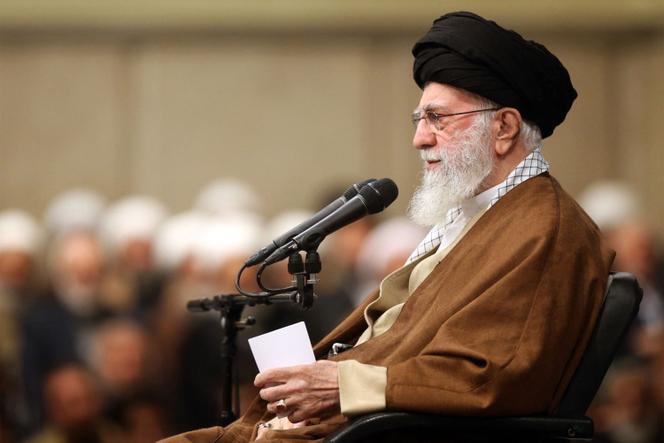In a lengthy speech to his supporters on Wednesday, December 11, Ali Khamenei reacted to the fall of Bashar al-Assad’s regime three days earlier. He emphatically blamed Israel and the US, and cautiously criticized Turkey for its support of the Syrian rebels.
Subscribers only

It took three days for Iranian Supreme Leader Ali Khamenei to comment on the fall of his close Syrian ally, Bashar al-Assad. On Wednesday, December 11, in a speech not broadcast live on Iranian television for once, the country’s highest authority tacitly admitted failure on the part of the “axis of resistance,” conceived as a front against Israel and the US under the aegis of Iran and with the help of armed groups active in Lebanon, Iraq, Syria, Yemen and Gaza. Today, this axis appears to be weaker than ever.
“What happened in Syria is a lesson for us,” Khamenei told several thousand supporters gathered in Tehran. “One of the lessons is to avoid abandoning vigilance in the face of a fast-acting enemy. The real conspirators … are to be found in the US and the Zionist regime [Israel, in official terminology].” During his 50-minute speech, however, the supreme leader never mentioned al-Assad by name.
‘Owing an explanation’
For Arman Mahmoudian, a researcher at the University of South Florida’s Global and National Security Institute, these statements reflect the “recognition of a major strategic setback” for Iran. “Today, as the regime of Bashar al-Assad has fallen, the leaders of the Islamic Republic owe an explanation to their supporters and to the population as a whole. Iran’s military support for Syria has cost between 30 and 50 billion dollars [between 28.5 billion and 47.5 billion euros], in addition to the loss of around 4,000 Iranian soldiers,” he said.
You have 55.98% of this article left to read. The rest is for subscribers only.
Vous pouvez lire Le Monde sur un seul appareil à la fois
Ce message s’affichera sur l’autre appareil.
-
Parce qu’une autre personne (ou vous) est en train de lire Le Monde avec ce compte sur un autre appareil.
Vous ne pouvez lire Le Monde que sur un seul appareil à la fois (ordinateur, téléphone ou tablette).
-
Comment ne plus voir ce message ?
En cliquant sur « » et en vous assurant que vous êtes la seule personne à consulter Le Monde avec ce compte.
-
Que se passera-t-il si vous continuez à lire ici ?
Ce message s’affichera sur l’autre appareil. Ce dernier restera connecté avec ce compte.
-
Y a-t-il d’autres limites ?
Non. Vous pouvez vous connecter avec votre compte sur autant d’appareils que vous le souhaitez, mais en les utilisant à des moments différents.
-
Vous ignorez qui est l’autre personne ?
Nous vous conseillons de modifier votre mot de passe.
Lecture restreinte
Votre abonnement n’autorise pas la lecture de cet article
Pour plus d’informations, merci de contacter notre service commercial.
